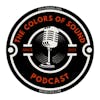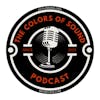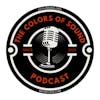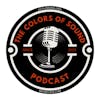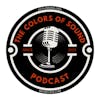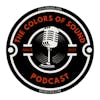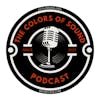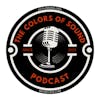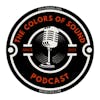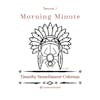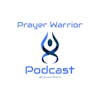

In this podcast episode, Timothy Coleman and Ghylian Bell discuss the importance of land medicine, regenerative agriculture, and indigenous spirituality. They explore the concept of Araminta, named after Harriet Tubman, as a place to learn about land medicine and mindful education practices.

In this podcast episode, Timothy Coleman and Ghylian Bell discuss the importance of land medicine, regenerative agriculture, and indigenous spirituality.
They explore the concept of Araminta, named after Harriet Tubman, as a place to learn about land medicine and grow food. They emphasize the need to reclaim cultural practices and connect with nature.
The conversation also touches on the transition from organized religion to personal spiritual practice and the importance of community and exchange.
Overall, the episode highlights the significance of understanding history, reclaiming traditions, and embracing spirituality in everyday life.
Takeaways
Land medicine and regenerative agriculture are essential for reclaiming cultural practices and connecting with nature.
Separating religion from spirituality allows for a deeper understanding of personal spiritual practice.
Community and exchange are important for supporting and uplifting one another.
Understanding history and reclaiming traditions are crucial for personal growth and empowerment.
@ColemanGlobal
--- Send in a voice message: https://podcasters.spotify.com/pod/show/wdon1204/message Support this podcast: https://podcasters.spotify.com/pod/show/wdon1204/support
In a world where so many things are vying for your time, I just wanted to say, Thank You for your attention.
In Unity,
Timothy
Timothy Coleman (00:00.046)
Welcome everybody. I am so glad that you're able to join us today. My name is Timothy Stone Dancer Coleman. I am here with the amazing Ghylian Bell. This is our podcast one of 12.
Timothy Coleman (00:14.998)
Ghylian Bell, she is the founder of Urban Yoga Foundation as well as the founder of Araminta. Ghylian, my sister, it is so great to have you. Thank you so much for letting me be a part of this process. Thank you so much, Tim. It's always really great to connect with you anytime I can. Just download with you is always exciting. I am Ghylian Bell from the Urban Yoga Foundation.
The Urban Yoga Foundation is an organization, a nonprofit organization that provides education and empowerment opportunities for people in the community to be proactive with regard to health. We've been doing this work in communities for almost 30 years and the start of this work actually, our real big contract happened in Harlem. And...
We're very excited about the work we're doing in the community, just land practices, proclaiming indigenous presence to practice, teaching people that they're not disconnected from all of these practices and ideologies that they see appropriated today, but they are a part of the historic presence of things like meditation, mindfulness, yoga, all these amazing healing art forms.
We are creative beings as indigenous people and healing arts is our method, has been our method of our own spiritual practice for thousands of years. So urban yoga aims to bring these ideas back to especially our youth and people right now who have a real sense of understanding that they're missing something.
when it comes to what they know about themselves and their culture. Missing in society, and when they go into these places, something sparks and the confusion sets in because they feel something and sometimes because of their dogma that they've been indoctrinated into when it comes to spirituality, they mix these feelings up with something that is not them. But what it is, it's the catalyst of you,
Timothy Coleman (02:30.574)
As spiritual beings need to know, land medicine, that walking and breathing and moving your body is a part of a spiritual practice, just like reading your Psalms and praying. Araminta, named after Harriet Tubman, it is her real name, is a concept to find a place where we can learn how to grow food. We can learn land medicine, regenerative agriculture, practices of
herbs and things from the land that is farm to table, that's who we always have been. And now it's one of those, again, buzz kinds of things that is a part of society that is always a part of our way of living. So we're just reclaiming these concepts and ways of being and having this place of our own. Our Araminta is in the Catskills. It is...
four acres of land, five miles from the original Woodstock, Bethel, New York. I think Bethel Performing Arts Center is in that space of where Woodstock happened. And they honored that by having the Performing Arts Center. We're not far from there. We're not far from the Delaware River. So we sit in the land of the Tamanee Lenape people, reclaiming like who those people were.
before William Penn came and met with King Tammany and everything kind of changed for the land people in that region. Just building on that land and naming it Araminta and knowing that King Tammany and William Penn, their conversation was a part of that, we're gonna live on this land together. And it wasn't until after William Penn died that his legacy, his ancestors changed that contract.
So they broke the contract that William Penn and King Tammany had to share the land, which should always be the case when it comes to land. So this is just a concept of us understanding ways of being, the natural course of living in our lives, the importance of nature, the importance of environmental sciences and agriculture, the importance of mindfulness being really celebrated.
Timothy Coleman (04:52.302)
from indigenous people. The idea of mindfulness education and being mindful came from people like George Washington Carver who had to walk with plants and seeds and foliage to understand the medicinal properties of them, to have a communication with nature because we are that nature within nature. We're in it, everything gets revealed. And we've been so removed from it, which is a part of...
the angst that indigenous people have within themselves because they know that this is their natural state of being. And when I say indigenous people, I wanna land with the people who are visibly indigenous but understand that we all come from one place. We all come from the cradle of civilization, Africa. So even white embodied people are indigenous people who have forgotten, who are further away from the importance of understanding where this came from.
What you're doing is, you know, you're sharing ways of being that came from indigenous people who live like this always. That's right. That's right. Basically, you know, how we're exercising this exchange again, you know, it all happens as an exchange. Now, just so folks know, I met Ghylian, you know, I am originally from Nebraska. I moved to New York when I was 19.
I come from a church family. You know, my mom's a pastor and my dad was a reverend. So I grew up in a Bible -based family. And I, at one point in my work in New York City of working with youth and developing programs in partnership with the Department of Education, I was so stressed and so tense and I was carrying such a weight.
And so one night I gave myself permission to find a yoga class. I just kind of showed up with a smile and like, you know, big eyes like, oh my God, here I am. Like, let's see. Every part of your process is a part of your story and transitions are important and how you transition from the practice that we had together that moment, how you transition from leaving that safe space into creating your own safety space as you walked back to that job.
Timothy Coleman (07:19.086)
Yes. Remembering the tools, right. And the reason why we call it a practice is because it's something that you have to do every day. You know, people are like, how do you do it? I was like, I wake up every morning before everybody. That's my time. Like, I know that that's my time. And I know that nobody's up because they're not getting up that early. Right. So I have to make sure that, you know, you know, we plan everything. It's like, I clean my house on Saturday mornings or I do my service on Sunday 11 or, you know,
I do my shopping here. It's, um, what is, what do you plan for yourself? What's your plan of action for a consistent way of carving out a moment that helps keep you on track for the rest of the day until that next moment has to happen. Or if you need that moment in between things happening during the day, then you use it because you know the tools and what do they look like? You know,
When I think of all the, and I like you, Tim, came from a very strong religious background. And you have to separate religion from spiritual out. It has to be a separate conversation. Some may embody both aspects, but most don't. And they need to be accepted because religious people get caught up in the...
the intellectual head stuff of it, and they forget the heart. You know, the heart piece is spiritual. The heart piece reminds you of love and kindness. The heart reminds you of how the only way we're still here is through spirituality, not religion. That's right. You know, when I was coming up, the reason why the premise lasted in me so long,
In that, you know, my grandfather was a pastor of his own church. Like you, I spent seven days a week in church. It was either Bible study, it was either women's auxiliary meetings. It was children's da -da -da. So I was always like in the church. But what I saw in the church of that time,
Timothy Coleman (09:43.118)
was strong women who cared for community, men who cared for making sure the foundation of support was in place so the women could serve. And they looked for the community. People ate in church. That's right. There was always dinner after service. They fed the church.
Tides was always a conversation of paying people's bills or fixing their roof. You read tides of what money was spent. We were able to pay for the medical bills, da da da, da da da, needed some help with, you know, this was the conversation that was a part of the exchange that we spoke about before. What we moved away from is that exchange and that...
the grounding of spirituality needed in special places like church. Yes. I transformed my practice and I started really listening to the words, the spiritual words. And I started understanding that the church is the body. Then we are the body and we are the church. When we go to church,
We sit in a body of people for fellowship and support and spiritual practices. When we leave church, we leave church in the body of that wisdom. So we embody that practice. So we are the church. We are the body. I say that to my granddaughter now. I say that to young people who are removed from ideas of what we were, you know, we had to kind of go. You know what I mean? That's right. So glad because it created a discipline in me. Oh, absolutely. Yes. Yes. But the other piece to this is,
It's not outside of us. Right. It's not every Sunday. It's every day. Every single day. It's a partnership with God. Yes. It's a change. The word is not just in a book. The word comes out of your mouth and how you're speaking to people. That's right. The spiritual joy of taking.
Timothy Coleman (12:07.66)
dogmic words out of practice, like even the word yoga. It really means to unite, to come together. That's church. Yes. When we come together and we're saying and sharing in the spiritual presence of just the beauty of what spirituality and practice means, then we take care of our bodies more because we have reflections.
of God in spirit, then what are we doing to ourselves daily? And it doesn't mean you feel bad about your imbalances. It means that you bring balance to your life. That's right. Then you take ownership. No, you take ownership. I have seen, first of all, I want to first agree with you. I would never have wanted to grow up any other way.
The disciplines, the love for the Lord, the understanding of the Holy Spirit, all of those things, right? Like that's not something I would ever want to get rid of. You know who's amazing that used to speak in the language of spirituality that I actually took for granted that he was around and did it? Reverend Ike. Reverend Ike, if you listen to Reverend Ike, and some pastors were just, they were in it. Yeah. They got it. Yeah. It wasn't, it wasn't.
They were like, Reverend Ike was like, you embody the truth of spirit. Like that was the only pastor around that time that took his head out of the reading and used the words in spirit and actual physical form of being. And that's what I wanted us to grow into as a people. I feel like we're there. Yes. Yes.
But we did pay a price by, you know, following the lead, not even looking to see in the Bible. If Christ is here, that meant where is there? There was Africa. Even that part was so hard, it was a disconnect. Yes. Christ was in Africa. Why was he in Africa? Because Christ was African. Right.
Timothy Coleman (14:27.448)
Why what, I mean, why was he in Africa? You know, when you think of where they made them stay, they put them in the stables with the animals. That's what they did to Africans. This, every part of the story matches the story, except for when you don't want it to.
And then it's like, that's the confusion. And I feel like we were, we also, we came from this cradle of civilization where we lived in spirituality and connection to spirit, which is why when we were taken and brought here in the Americas, we were easily brought into Christianity or Islam. Why? Because we were spiritual beings. We were like, oh, is this the spirit energy of your land?
let us get to know it. That was the moment that because we didn't know, we walked into someone else's story of what it really looks like to be a spiritual being, what it really looks like to have land medicine and use everything that God gave us to be full of selves because it's here. That's right. It's not...
At 11 o 'clock on Sunday? No. It's moment of every day. That's exactly right. Now, see, you just, okay, so you said this word before and I want to dig into it. Land medicine. What? Like it just sounds so yummy. Talk to me about land medicine. How does somebody who's never heard that phrase before, how do they define that? What does that really mean? So, you know, I say this is where we have to do, my father,
stopped going to school in the sixth grade. Then he was a genius math person, ended up being a hairdresser and a builder, carpenter. His name was John, right? So, brothers named James and John, right? They were both builders, carpenters, right? Biblical names because their father was a pastor, right? So, very heavy. My father was a black sheep, you know? But I watched this man who left school in the sixth grade still become himself and create a way to take care of his family.
Timothy Coleman (16:47.15)
hands, right? So always say the healing is in your hands. Yes. And Jesus was a carpenter, right? His fathers were carpenters, right? These are builders, right? And Jesus was a walker, right? He walked the lands, right? So we think of mindfulness meditation, we think of mindfulness. We're like, walk, walk on the earth and with leathered, sold or bare feet. So you're grounding yourself in the nourishment of the land, right? So when I think of medicine and land medicine, I know,
You look and you Google the maps of the first civilizations, African civilizations, before they were invaded by Asia and European countries. You look at the map and it was so connected, that's why we can walk to other places and that's why the movement of people out of Africa can happen. And the built boats that took them further. But you look at the map and you see the Nile. And then you see the Nile, the Red Nile, the what? You see the Red Sea, the what?
different Niles in this, and their veins of survival. Just like the veins we have in our body, our bodies, we are nature. We are this imitation of everything that is in front of us. We are the tree that grows in the forest. We are the leaf, we are the plant. So when I say land medicine, I say that everything we need is here. And everything we need is actually, is still in Africa. That's why the fight.
for resources and everything after it. Oh, goes on to this day. It goes on to this day because everything we needed is in the land. All the medicine came from the land. All the medicine and chemicals that are coming, that are being indoctrinated into our system now, a little part of it, that's land stuff that scientists did and mixed with other things to do other things, which is why that's not the cure, because it affects other systems in our body. When you...
dive into real land medicine, your body knows it. Your body recognizes this as medicine. When Hippocrates said, use food as thy medicine, Hippocrates, noted as the father of medicine, learned from the God of medicine, which was Imhotep. And Imhotep was a physical being that lived thousands of years before Hippocrates. But Hippocrates and most Greeks studied
Timothy Coleman (19:11.086)
knowledge from ancient Ethiopians and Kushites. And I don't want to say, even though we call them Egyptians now, it makes people think that they are the Egyptians now. Ancient Egyptians were dark colored Kushite people. They were dark colored Ethiopians. And Imhotep was the father of medicine. He's the one who brought us to land medicine. So land medicine is the authentic way.
of healing and living on land, the way we did. And the irony is this rush for land that is happening, this rush for seeds, because seeds are gonna be the currency like they were so many thousands of years ago, when certain people cultivated land and food and other people did other things, but the exchange were to teach each other these things. And now people are hoarding seeds so they can be in control of the food.
And that's why we have to know land medicine so that we can be in control of our lives, our health, our efficacy, our ways of being that is a part of our culture. So land medicine and regenerative agriculture and just basic farming knowledge is what Araminta is all about, going back to Araminta. And I would really love the community.
Like the early abolitionists were when Araminta herself, Harriet Tubman, needed the help of community to work in and work through that Underground Railroad, to leave the situation of oppression that she was in, to be the first kind of documented single mother in her story. You know, because a lot of people don't know Araminta, Harriet Tubman, her husband was a free man.
So she was enslaved and he was free. So no wonder he didn't want to leave. He was like, listen, if I want to go in town, I got my papers. I could do what I want to do. Right. Why would I leave this home that we really don't have to pay for? I'm fine. There's so many people who had that mentality of.
Timothy Coleman (21:30.478)
the sedentary mentality of just accepting their situation. That's right. Again, we're in the same time. We have the decision now to either accept our situation or to be our Araminta, to be a movement of a people out of the shackles in our mind and into our own efficacy, advocacy and pro -social behavior to reclaim our lives.
and reclaim our practices. That's so powerful. That's so powerful. Like, what was the morning like when you woke up and you were like, yes, Araminta? Like, what were you like, what was happening? Because you understand so much of the chronology, right? The history of these steps that were taken from.
Africa and who came in and who snatched what and kind of like where we are right now. What was it that when you said, okay, I've got Urban Yoga Foundation and we're doing work in schools and we're doing work at colleges and we're doing work in the community. I know for a fact, you know, because of our partnership, you worked with youth, you worked with teachers and administrators. What made you want to?
And I'm going to use this phrase with all love, but like what made you want to even level up? Right? You know what I'm saying? Like you're leveling up to a space where this is, you're creating something that can exist throughout multiple generations. How, how did you even, this, how did this even land on you? You know, this is, you know what I love about what the words you're using leveling up. We all have the opportunity. We all got the opportunity.
You know what I mean? It starts at a whisper. It starts as a whisper, right? And then it gets louder. And then sometimes, sometimes people level up when their health is taken, right? All of a sudden they like, they change the way they're eating, right? That's right. But spirit, spirit whispered in there a long time before that happened. Way before, yes. Way before that tragedy or that impact changed everything and made them have to level up. We all have the opportunity to level up.
Timothy Coleman (23:53.774)
My moment was when I realized that the historical narrative, especially in schools, was completely off. That, you know, my father said to me, going back to that story, said, you go to school because if you did not go to school, I would go to jail. What you're going to learn, you're not going to learn in school. I need you to be, I need you to understand self -study.
I need you to read books that you're interested in, to understand when you don't know, to look it up. Even if you ask, find out for yourself if you can. Four generations of us went to Egypt for my birthday last summer so that we can see these images, so that we can see our culture, right? And that was a big trip. And I'm still paying for it. The most important thing I could ever do, my mother, my daughter, my granddaughter, you know?
both sides of my family, some cousins from my father's side, some from my mother's side, some of my teachers that I work with in school. 13 of us, I was included, which came up, which brought up the idea of being one of 12, right? Because it was 13 of us, I was one, right? I'm counting myself as 13, but it's 12 people that I invited to share this wisdom with me. And what did it for me for Araminta, even before we did that trip?
was like I said, I just saw the need to fill in the gaps and really understanding that there are people out here who want a generation of folk to forget who they are, to forget the history of us. Yes. With the importance of the abolitionist movement, those people came together. We're talking Quakers, Christians, Muslims, activists, you know.
no matter what their backgrounds and they risk their lives and their families' lives for humanity. That's where we got to get back to. And that's the people who remember that they came from the same people. Those people in the 18 and 1700s who were in the abolitionist movement knew exactly who they were. They knew who they weren't and they knew who they were. Yes. So our Menta and knowing that
Timothy Coleman (26:23.822)
Her name was really Araminta, and I was just like, it means protector and prayer. I was like, what other name could it be? And this way I seal her story in a historic narrative that no one can take away.
Featured Episodes
Check out the latest podcast episodes from our channel.










